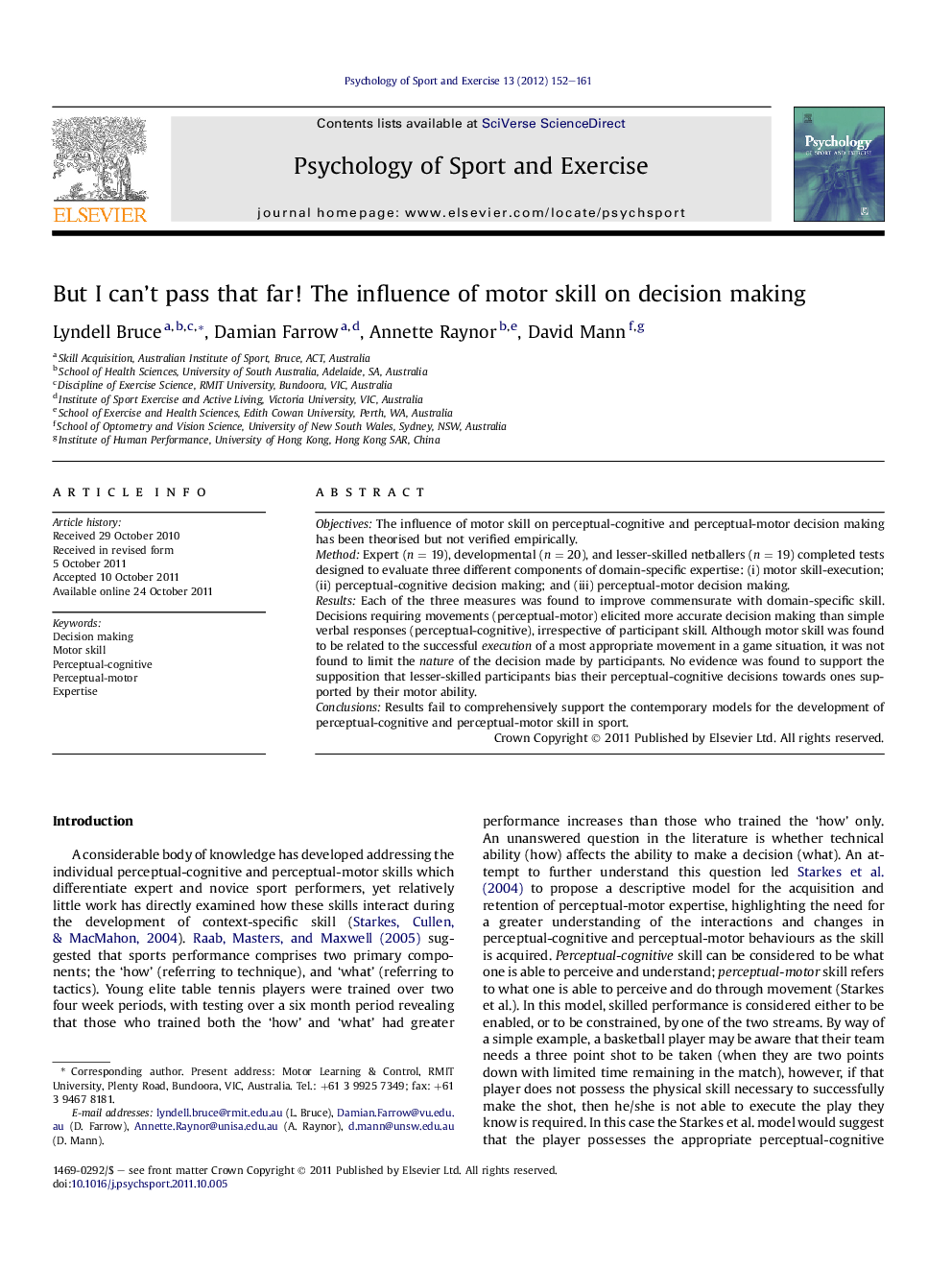| Article ID | Journal | Published Year | Pages | File Type |
|---|---|---|---|---|
| 894592 | Psychology of Sport and Exercise | 2012 | 10 Pages |
ObjectivesThe influence of motor skill on perceptual-cognitive and perceptual-motor decision making has been theorised but not verified empirically.MethodExpert (n = 19), developmental (n = 20), and lesser-skilled netballers (n = 19) completed tests designed to evaluate three different components of domain-specific expertise: (i) motor skill-execution; (ii) perceptual-cognitive decision making; and (iii) perceptual-motor decision making.ResultsEach of the three measures was found to improve commensurate with domain-specific skill. Decisions requiring movements (perceptual-motor) elicited more accurate decision making than simple verbal responses (perceptual-cognitive), irrespective of participant skill. Although motor skill was found to be related to the successful execution of a most appropriate movement in a game situation, it was not found to limit the nature of the decision made by participants. No evidence was found to support the supposition that lesser-skilled participants bias their perceptual-cognitive decisions towards ones supported by their motor ability.ConclusionsResults fail to comprehensively support the contemporary models for the development of perceptual-cognitive and perceptual-motor skill in sport.
► Motor skill influenced the performance of the required action, but not necessarily the decision made. ► Performance is superior on a coupled perceptual-motor task relative to a de-coupled perceptual-cognitive task. ► Motor skill performance was commensurate with expertise.
